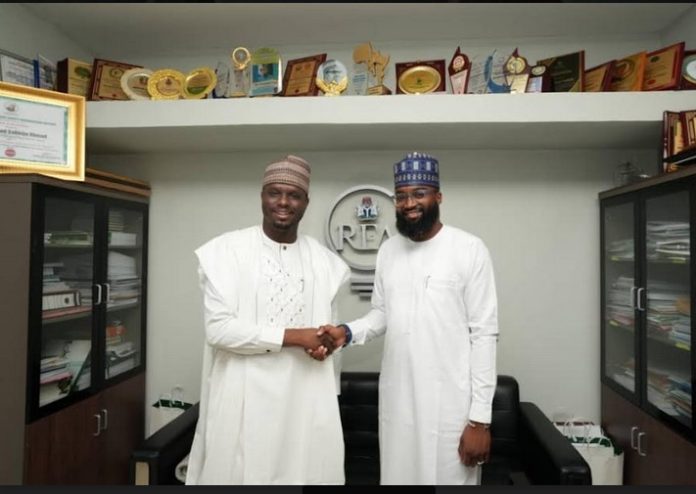REA to Deploy NASENI Renewable Technologies To Light Up Rural Areas in Nigeria
.. To Partner NITDA On Local Content Development
The Executive Vice Chairman/CEO of the National Agency for Science and Engineering Infrastructure (NASENI), Mr Khalil Halilu and the Managing Director/CEO of the Rural Electrification Agency (REA), Mr. Ahmad Salihijo Ahmad have agreed to work together to deploy NASENI Solar resources and other renewable energy technologies, to increase electricity supply to Nigeria’s rural areas.
This commitment was the outcome of discussions between the two chief executives in Abuja on Friday September 15, 2023, when the EVC/CEO of NASENI visited the Rural Electrification Agency (REA) office as part of his efforts to engage with stakeholders to promote the adoption of NASENI’s technologies.
Mr. Halilu, who assumed office two weeks ago as NASENI’s chief executive, said, “The focus is to hit the ground running by nurturing effective collaborations with the right stakeholders who will assist NASENI to fulfil its mandate of providing the science and engineering infrastructure base for Nigeria’s businesses and economy to thrive.”
According to him, “The strategy, going forward, for NASENI includes knocking on the doors of potential end-users of the Agency’s technology and engineering products, making off-take of our Research & Development (R&D) easy, while also bringing the direct impact of our work to bear on the Nigerian economy.”
The two chief executives pledged to work together to bring down the cost of solar power installation in rural areas, through efforts such as increased local production of solar panels by NASENI. The overall goal, according to the REA MD, Ahmad Salihijo, is to facilitate the Federal Government’s ambition to achieve the electrification of Nigeria’s rural areas in record time.
Earlier in the day, Mr. Halilu visited the Director General/CEO of the National Information Technology Development Agency (NITDA) Mr. Kashifu Inuwa Abdullahi, on a similar mission. The two CEOs emphasized the need to look inward and develop local content (human and material) capacity to transform the economy.
Halilu sought to leverage on the long-standing relationship between himself and the NITDA boss, and also between the two organisations, to share experiences and best practices in management and in resource optimization.
Abdullahi disclosed that NITDA’s strategy of focusing on changing both the mind-sets and skill-sets of its staff are two critical factors that have helped the Agency achieve up to 62 percent of its goals and objectives within two (2) years, ahead of its four (4) year projection. He noted that the same approach would work for NASENI, as long as there was a well-thought-out strategic plan, and clarity of vision and goals.




